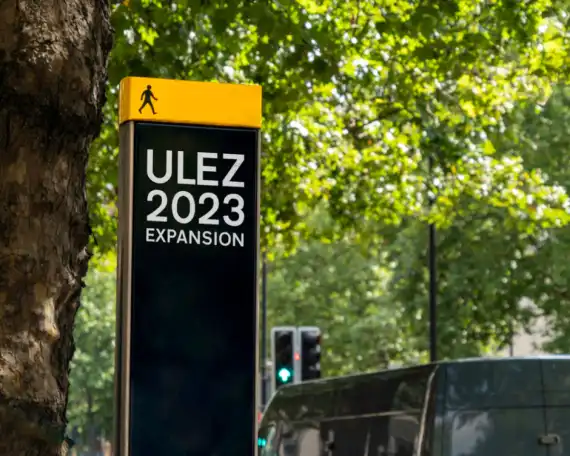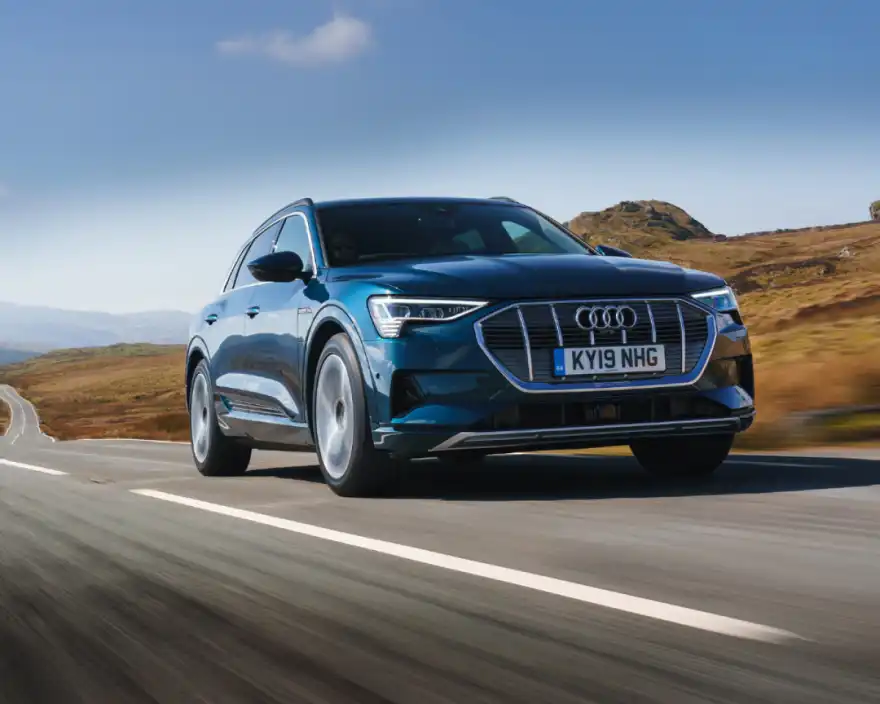
For a time, used electric car prices stayed fiercely high, as relatively strong demand and limited supply helped to ensure limited depreciation.
But in recent years as the choice of EVs on the market has expanded significantly, it’s led to a situation where often the supply of electric cars outstrips demand. As a result, used prices have dropped significantly in some instances, and are down as much as 40 per cent in 2023 compared to the previous year.
But you shouldn’t let this put you off going electric. Instead, use this to your advantage when buying a used electric car, which will have already taken the significant depreciation hit that comes in the first year of registration. It means there are some great used electric cars available. Let’s take a look at the best.
Peugeot e-208
Peugeot has ramped up its line-up of electrified models at quite a rate, with almost every car it sells now available as an EV or a hybrid. Its most affordable electric car is the e-208, which gets even better value on the used market.
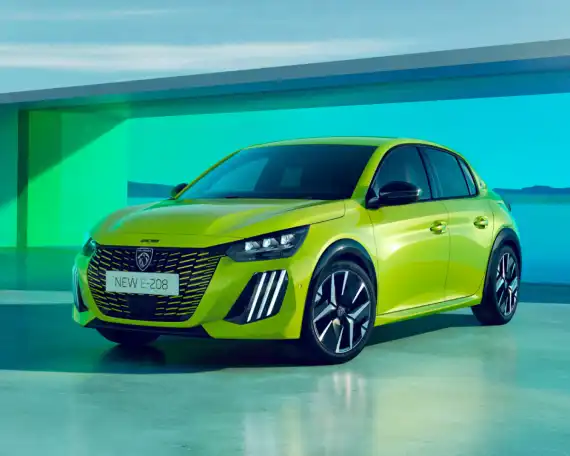
With three-year-old examples available for £15,500, it’s roughly half what you’d pay for a new version. The e-208 also has a stunning interior, particularly for a small car, and Peugeot claims a range of up to 222 miles.
Tesla Model 3
Tesla remains the ‘go-to’ brand where electric cars are concerned, being the default choice for many. Its cars are perfectly able to combine performance with efficiency, while the tech-laden interior also appeals to many.

Tesla’s Model 3 remains one of the most popular EVs around, and as a result, there’s plentiful supply on the used market. New, a Model 3 starts from £43,000, but a three-year-old example can be bought for £25,000. It’s a lot of car for the money. Most versions are capable of at least 250 miles on a charge, too.
Audi e-tron
The Audi e-tron is one of the most upmarket electric SUVs around, with a stunning interior that is made from especially upmarket materials. It’s one of the EVs that have fallen in steeply in recent years, though, especially the entry-level Tecknik models, which are still generously equipped.
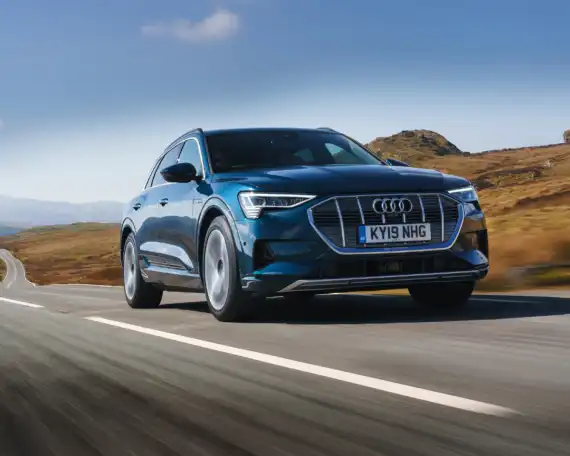
The standard ‘50’ version might not have the longest of ranges, but 175 miles should still be achievable from a single charge. You can pick up a three-year-old version of this SUV for under £30,000 – a significant drop from the £70,195 you’d pay for Audi’s Q8 e-tron, as the model is now known.
Fiat 500
Fiat is renowned for being the leader when it comes to city cars, and it’s managed to keep that title when it comes to EVs too with its new 500e. Only introduced in 2021, a low-mileage example can be bought for £17,000 – a significant reduction on the £28,195 you’d pay for a brand-new model.
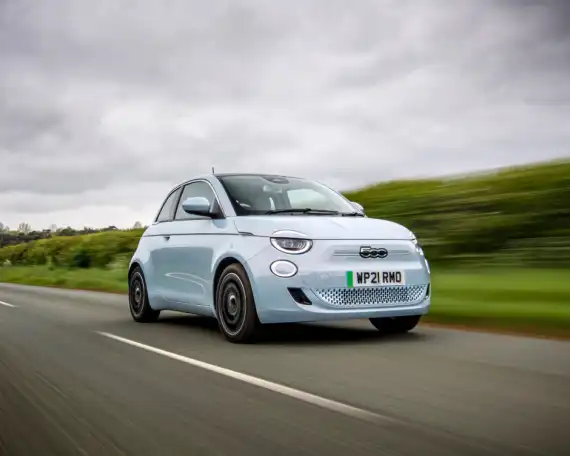
Though it might look like the petrol Fiat 500, this electric model is based on new underpinnings and is a significantly better option – it’s better to drive, packed with technology and has an upmarket interior too. A claimed range of 199 miles is also excellent for a car of this size too.
Volkswagen iD.3
The Volkswagen ID.3 was a hugely important car for this firm, introducing a new era of EVs, which has spawned a whole line-up of ‘ID’ models. This electric hatchback is similar in size to the Golf, but is noticeably roomier, especially when it comes to rear seat space.
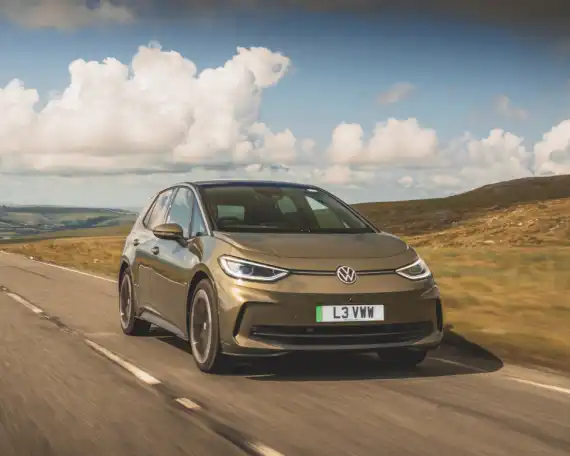
Though a new entry-level ID.3 costs £37,115, used models are available from around £20,000, which isn’t a lot more than what you’d pay for a Golf of a similar age, despite the significant difference in price when the cars are new. The ID.3 is good to drive, smart to look at and gets plenty of equipment, too. Most versions feature the 58kWh battery, allowing for a claimed range of 258 miles.
Other electric car incentives
It’s not just the attractive price of used EVs that should draw you in, but there are other financial incentives as well. Let’s have a look at some other cost advantages..
Company car tax
Company car drivers have one important measurement, which is called benefit-in-kind (BiK). This helps to calculate the percentage of tax employees are required to pay.
Electric cars qualify for significantly lower company car tax, as for the 2023/24 and 2024/25 tax year, the BiK rate is being held at just two per cent. Compare that to typical petrol and diesel, and these usually have rates of around 30 per cent. In short, there are significant savings to be made.
Free vehicle tax
Electric cars also continue to qualify for free road tax, officially known as vehicle excise duty (VED). While other types of vehicles, costing above £40,000 when new, are subject to a ‘luxury car tax’ until they’re six years old, EVs are exempt from this too.
Though this is set to change after March 2025, there are still a couple of years where you can make the most of free VED.
Check the tax status of your car here.
Exemption from London Congestion Charge and other Low Emission Zones
Across the UK, local authorities are looking to do their bit to reduce air pollution. This has seen various Clean Air Zones (CAZ) introduced to cities such as Bristol and Birmingham, as well as the controversial Ultra Low Emission Zone (ULEZ) in London. There’s also the separate Congestion Charge In Central London, which aims to reduce traffic.
The good news is that all EVs are able to escape these charges because of their zero tailpipe emissions, which can bring considerable savings compared to non-compliant vehicles paying the daily charges.
Not sure if your car is compliant with ULEZ, CAZ and the Congestion Charge? Enter your registration plate here to find out.
